Why do rich people buy diesel-fuelled luxury cars? It's not that they can't afford petrol and one would think that forking out $200,000-plus for a big oil-burner would be pointless. But well-heeled people buy diesel cars — in fact, more than one-third of all BMWs sold in Australia are diesel, making the marque the most popular luxury diesel maker — for three main reasons.
In no particular order, a diesel needs about a third less visits to the bowser as its petrol-fuelled equivalent. Less time filling up equals more time doing other things, like reading the newspaper over a cup of coffee while thinking about ways to make money.
The second reason is the subjectively warm and cuddly feeling you get from driving a big, fuel efficient and (relatively) low-polluting car. The fact that a diesel has substantially lower fuel consumption also means it pumps out far less carbon-dioxide. Most European cars also have particulate and oxidation filters to dramatically cut other nasties such as nitrous oxides and hydro-carbon soot. Then there's performance. Though you'd probably never expect it, diesels can really get up and fire.
Now to the BMW 730d. The Europeans who can afford a car like this love them because they'll run long and hard over international freeways on fuel that — unlike Australia — is cheaper than petrol. Buyers miss nothing in the way of luxury and even clever soundproofing makes the 730d as quiet as its petrol equivalent.
Variants and pricing
The 730d costs $198,800 to make it the cheapest 7-Series, $4200 less than the 3-litre petrol six-cylinder 740i. The 740i is faster to 100km/h by 1.3 seconds but averages 9.9 litres/100km; more than the diesel's 7.2 l/100km average.
So there's sense in choosing the diesel 7-Series rather than the petrol. But to most buyers, that's not the point. It's all about convenience. You'd squeeze 1111km out of the diesel's tank and 828km out of the petrol before needing a refill. You won't miss out on any luxury and you'd be hard pressed to notice the slightly less acceleration time.
Engine and technology
The diesel engine is a new unit that is shared with the 330d and will soon begin to appear in other BMW models. Compared with its predecessor, it gets an aluminium block, a turbo with a variable-pitch impellor and a higher pressure injection system. Power and torque is up and fuel consumption is down.
Clever body aids — including air flaps in the grille that only open when the engine needs additional cooling — cut air drag to a slippery 0.29. Anything under 0.30 is excellent. Most body panels are aluminium which makes big savings — the roof alone saves 7kg and the doors add up to a 22kg saving.
The 730d also has brake-energy regeneration, automatically engaging the alternator only when the car is coasting or braking. That boosts the battery power and reduces the engine's commitment to running ancillary components. For the driver, all this is academic. The 730d may be big but a plethora of electronic aids makes it feel nimble and light to operate.
Equipment
Most drivers will take it as it is and luxuriate in the comfort features. More curious owners will start playing with the buttons, finding the ‘dynamic driving control’ as being the key to changing this car from limousine status into something akin to a sports sedan. Granted, a big sports sedan. This control offers comfort, normal, sport and sport-plus settings that adjust the suspension, throttle and steering response.
The effect is as predicable as the names of the setting, with comfort soaking up and insulating every road imperfection while sport tightens up the car, extends the gearbox upshift points and firms the suspension. Sport-plus sharpens everything to razor-blade fineness and even turns off the electronic stability control to turf out the nanny. The sport-plus setting, though tempting, isn't recommended for the road. The sport switch is perfect for a bit of exhilaration but the comfort suits the car and will, possibly, better suit the maturity of the owner.
As you'd expect, standard equipment is extensive. It includes head-up display speedo, headlights that turn into corners, auto door and boot closing, TV and DVD satellite navigation, heated and ventilated front seats and a reverse camera.
The BMW feels exclusive yet has active rivals in the recently-released upgrade of the S-Class, the Audi A8 and the Lexus — even though the Lexus isn't a diesel. What's so alluring about the 730d is the ease at which it does everything and the ability to go so far between fuel top-ups. That alone is worth more than money to some buyers.
Verdict: 93/100
BMW 730d
Price: $198,800
Engine: 3-litre, in-line six-cyl turbo-diesel
Power: 180kW @ 4000rpm
Torque: 540Nm @ 1750-3000rpm
Performance: 0-100km/h: 7.2 seconds
Economy (official): 7.2 litres/100km, (tested): 7.9 litres/100km
Emissions: 192g/km (Corolla: 175g/km)
Transmission: 6-speed automatic, sequential; rear-drive
Rivals:
Audi A8 3.0TDI quattro ($172,900) — 91/100
Lexus LS460 ($201,000) — 90/100
Mercedes S320CDI ($201,810) — 92/100
BMW 730D 2009:
| Engine Type | Diesel Turbo 6, 3.0L |
|---|---|
| Fuel Type | Diesel |
| Fuel Efficiency | 6.8L/100km (combined) |
| Seating | 5 |
| Price From | $22,990 - $28,380 |
| Safety Rating |
|
Range and Specs
| Vehicle | Specs | Price* |
|---|---|---|
| 730d Base | 3.0L, Diesel, 6 SPEED AUTO STEPTRONIC | $22,990 - $28,380 |






















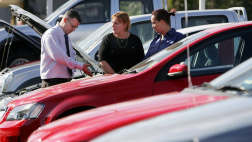
.jpg)
.jpg)
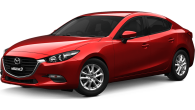
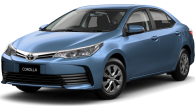
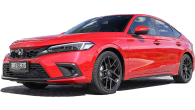




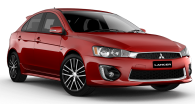

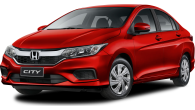



.png)


.jpg)
